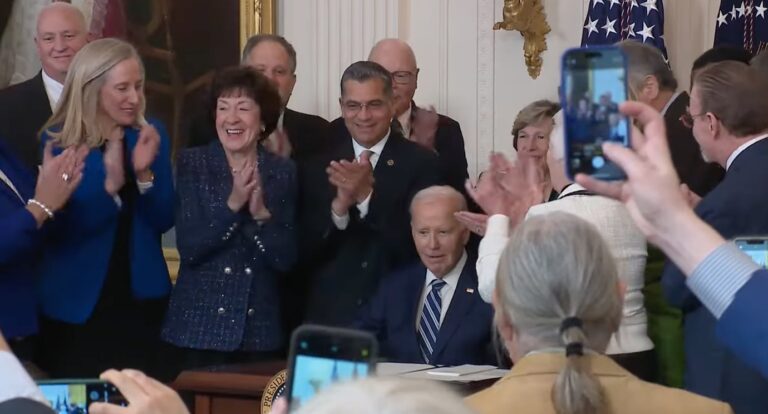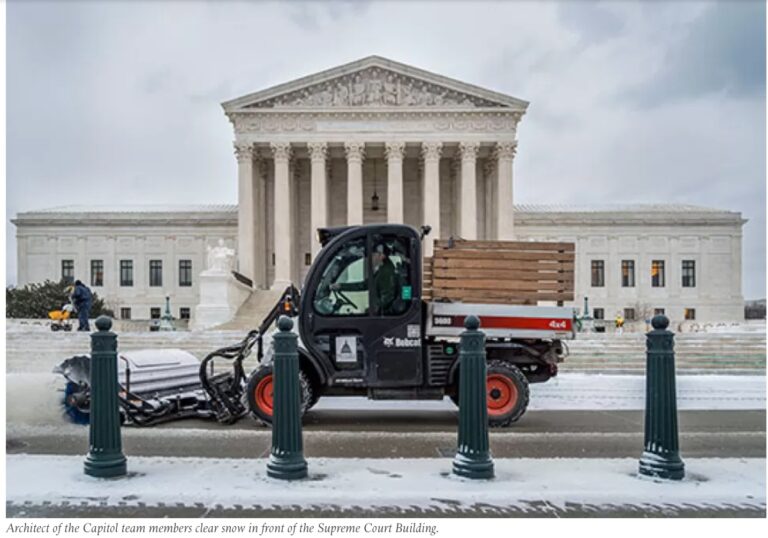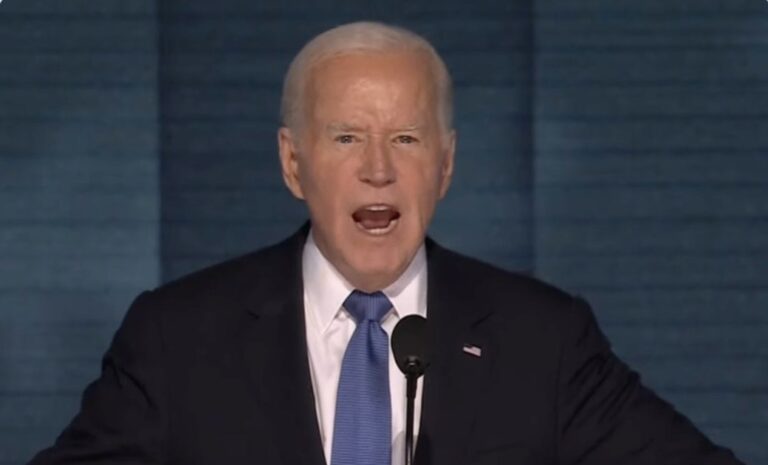By OWEN KLINSKY | DAILY CALLER NEWS FOUNDATION
The lame duck Biden administration’s Consumer Financial Protection Bureau (CFPB) issued a rule in December to curb overdraft penalties in what experts told the Daily Caller News Foundation is an example of government overreach that will ravage low-income Americans.
The CFPB — an agency that is considered the brainchild of Democratic Massachusetts Sen. Elizabeth Warren — finalized the rule just weeks before President-elect Donald Trump takes office, with the aim of forcing banks to either cap overdraft fees at $5, far less than the $35 average, or to provide the overdraft as a form of credit rather than a penalty.
While the policy’s stated aim is to increase transparency and protect American depositors, experts told the DCNF it will force banks to implement more stringent rules on bank accounts, limiting access to credit and financial services for low-income Americans, and pushing more borrowers to turn to payday lenders, who typically charge far higher interest rates.
“This is a classic case of government overreach with regulators having no idea how private business works,” E.J. Antoni, a research fellow at the Heritage Foundation’s Grover M. Hermann Center for the Federal Budget, told the DCNF. “These new regulations would eliminate certain services and impose stricter rules on bank accounts predominantly held by low-income folks. If those people need an extension of credit because they don’t have sufficient funds to meet an immediate expense, they’ll be driven to even more costly payday lenders.”
While typical credit card annual percentage rates range from 15% to 30%, and personal loans are even lower, payday lenders often charge annual interest rates of anywhere from 300% to 500%, according to Mayo Employees Federal Credit Union. In 2022, 17% of households with checking accounts reported that they or someone in their family paid an overdraft fee, with households with incomes under $30,000 twice as likely to report at least one overdraft as those with incomes of $100,000 or more.
American household debt stood at a record high of nearly $18 trillion at the end of the third quarter of 2024, increasing by nearly $4 trillion from when President Joe Biden took office in the first quarter of 2021, according to the Federal Reserve Bank of New York. Credit card balances have also surged since the COVID-19 pandemic, with American households holding $1.17 trillion in credit card debt in the third quarter of 2024, up from $770 billion in the first quarter of 2021.
CFPB claims it has the legal authority to implement the regulation on the grounds overdrafts are loans and not penalties — an argument Erik Jaffe, partner at law firm Schaerr | Jaffe LLP, described to the DCNF as a “stretch.”
“The CFPB was given authority to regulate certain circumstances of consumer lending. As a result, the question is whether or not an overdraft on your checking account constitutes a short-term loan,” Jaffe told the DCNF. “It seems like quite the stretch. Banks charge customers a fee on overdrafts. The fee is not interest, as the length of time you take to pay back the fee does not change how much you owe. Interest must have a time component to it. It’s not like banks are giving customers with overdrafts money over time. They are just doing a courtesy of not bouncing a charge and embarrassing the customer.”
Jaffe also pointed out that the CFPB contradicts itself by attempting to re-classify overdrafts as a form of lending, while simultaneously permitting banks to charge overdraft penalties so long as they are under a certain dollar amount: “If the only way the CFPB has power to regulate overdrafts is by treating it as a loan, then why do they get to regulate the amount of penalty? If they concede its a penalty, then it is not within their purview. There’s an internal inconsistency here.”
The overdraft rule incurred immediate legal pushback following its finalization, with the American Bankers Association (ABA) filing a motion in the Southern District of Mississippi’s Fifth Circuit for a preliminary injunction on Dec. 12. Jaffe suggested legal challenges like the one from the ABA could be successful, particularly after the Supreme Court voted6-3 in June to overturn Chevron deference — a legal theory that providedunelected bureaucrats with significant leeway to interpret statutory ambiguities.
“We no longer defer to an agency when they say ‘if you squint really hard this statute means I can do whatever the heck I want,’” Jaffe told the DCNF. “This CFPB rule seems to smell a bit like that. The agency appears to be saying ‘if we squint just right, overdrafts look like loans, and so we have the authority to regulate them.’ The courts will take it upon themselves to determine if this is the most natural reading, and will likely conclude it is not.”
Outside of the courts, Republican lawmakers have taken aim at the rule, claiming it will limit access to credit and describing it as an example of “midnight rulemaking” by the outgoing Biden administration.
“As I’ve said repeatedly, lawful and contractually agreed upon payment incentives promote financial discipline and responsibility and protect access to important financial services,” incoming Senate Banking Committee Chairman Tim Scott of North Carolina wrote following the finalization of the rule on Dec. 12. “With just over a month until the next administration takes over, Director [Rohit] Chopra should never have finalized this rule in the first place, and I look forward to working with the next CFPB Director to advance policies that prioritize consumers over political talking points.”
Incoming House Financial Services Committee Chairman French Hill of Arkansas echoed Scott’s sentiment in a Dec. 23 statement: “We told federal agencies — including the CFPB — to put their ‘pens down’ and stop all midnight rulemaking. Director Chopra blatantly disregarded our request by finalizing this rule. Capping overdraft services is another form of government price controls that hurts consumers who deserve financial protections and greater choice.”
Chopra is a longtime ally of Democratic Massachusetts Sen. Elizabeth Warren, helping her establish the CFPB following the passage of the 2010 Dodd-Frank financial reform law. Warren was instrumental in creating the CFPB, with former President Barack Obama describing the agency as “Elizabeth’s idea.”
“I also want to thank Elizabeth Warren not only for her extraordinary work standing up the new agency over the past year, but also for her many years of impassioned leadership, and her fierce defense of a simple idea: ordinary people deserve to be treated fairly and honestly in their financial dealings,” Obama said in a July 2011 speech touting the then-fledgling agency. “This agency was Elizabeth’s idea, and through sheer force of will, intelligence, and a bottomless well of energy, she has made, and will continue to make, a profound and positive difference for our country.”
Peter Earle, senior economist at the American Institute for Economic Research, told the DCNF the rule was the latest in a long line of “regulatory overreach” from the Biden administration.
“Capping overdraft fees by regulatory fiat is yet another example of regulatory overreach from the Biden administration, as it interrupts the pricing mechanism that reflects the costs and risks of providing overdraft services,” Earle said. “It’s not the first time, by far, that the outgoing administration has assumed that government knows better than private enterprises, consumers, and the price system, undermining the voluntary, cooperative commerce that drives competition and innovation.”
The CFPB and Warren’s office did not respond to requests for comment.










